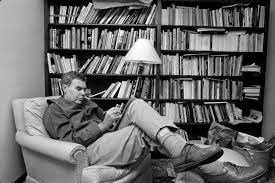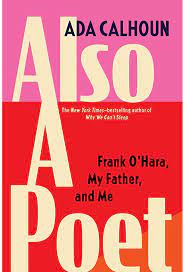
Before diving into my 2023 project of reading a short story a day from the Library of America’s Carver: Collected Stories, I read his brief essay “On Writing” and jotted some bon mots (French for ‘words that seem more important than others’). Of course, no one gives a damn about a writer’s opinions on writing until said writer has “made it.” I’ll give Ray that. Loved his collected poems, so why wouldn’t I respond in kind to what he is most famous for?
Without further ado, here are some Carver-isms for those plying the trade:
“This is one of the things that distinguishes one writer from another. Not talent. There’s plenty of that around. But a writer who has some special way of looking at things and who gives artistic expression to that way of looking: that writer may be around for a time.”
“Isak Dinesen said that she wrote a little every day, without hope and without despair. Someday I’ll put that on a three-by-five card and tape it to the wall beside my desk. I have some three-by-five cards on the wall now. ‘Fundamental accuracy of statement is the ONE sole morality of writing.’ Ezra Pound. It is not everything by ANY means, but if a writer has ‘fundamental accuracy of statement’ going for him, he’s at least on the right track.
“I have a three-by-five up there with this fragment of a sentence from a story by Chekhov: ‘…and suddenly everything became clear to him.’ I find these words filled with wonder and possibility. I love their simple clarity, and the hint of revelation that’s implied. There is mystery, too. What has been unclear before? Why is it just now becoming clear? What’s happened? Most of all—what now? There are consequences as a result of such sudden awakenings. I feel a sharp sense of relief—and anticipation.
“I overheard the writer Geoffrey Wolff say ‘No cheap tricks’ to a group of writing students. That should be on a three-by-five card. I’d amend it a little to ‘No tricks.’ Period. I hate tricks. At the first sign of a trick or a gimmick in a piece of fiction, a cheap trick or even an elaborate trick, I tend to look for cover. Tricks are ultimately boring, and I get bored easily, which may go along with my not having much of an attention span.”
“Too often ‘experimentation’ is a license to be careless, silly, or imitative in the writing. Even worse, a license to try to brutalize or alienate the reader. Too often such writing gives us no news of the world, or else describes a desert landscape and that’s all—a few dunes and lizards here and there, but no people; a place uninhabited by anything recognizably human, a place of interest only to a few scientific specialists.
“It should be noted that real experiment in fiction is original, hard-earned and cause for rejoicing. But someone else’s way of looking at things—Barthelme’s, for instance—should not be chased after by other writers. It won’t work. There is only one Barthelme, and for another writer to try to appropriate Barthelme’s peculiar sensibility or mise en scene under the rubric of innovation is for the writer to mess around with chaos and disaster and, worse, self-deception.”
“It’s possible, in a poem or a short story, to write about commonplace things and objects using commonplace but precise language, and to endow those things—a chair, a window curtain, a fork, a stone, a woman’s earring—with immense, even startling power. It is possible to write a line of seemingly innocuous dialogue and have it send a chill along the reader’s spine—the source of artistic delight, as Nabokov would have it. That’s the kind of writing that most interests me. I hate sloppy or haphazard writing whether it flies under the banner of experimentation or else is just clumsily rendered realism. In Isaac Babel’s wonderful short story, ‘Guy de Maupassant,’ the narrator has this to say about the writing of fiction: ‘No iron can pierce the heart with such force as a period put just at the right place.’ This too ought to go on a three-by-five.”
“If the words are heavy with the writer’s own unbridled emotions, or if they are imprecise and inaccurate for some reason—if the words are in any way blurred—the reader’s eyes will slide right over them and nothing will be achieved. The reader’s own artistic sense will simply not be engaged. Henry James called this sort of hapless writing ‘weak specification.’”
“But if the writing can’t be made as good as it is within us to make it, then why do it? In the end, the satisfaction of having done our best, and the proof of that labor, is the one thing we can take into the grave.”
“I like it when there is some feeling of threat or sense of menace in short stories. I think a little menace is fine to have in a story. For one thing, it’s good for the circulation. There has to be tension, a sense that something is imminent, that certain things are in relentless motion, or else, most often, there simply won’t be a story. What creates tension in a piece of fiction is partly the way the concrete words are linked together to make up the visible action of the story. But it’s also the things that are left out, that are implied, the landscape just under the smooth (but sometimes broken and unsettled) surface of things.
“V.S. Pritchett’s definition of a short story is ‘something glimpsed from the corner of the eye, in passing.’ First the glimpse. Then the glimpse given life, turned into something that illuminates the moment and may, if we’re lucky—that word again—have even further consequences and meaning. The short story writer’s task is to invest the glimpse with all that is in his power. He’ll bring his intelligence and literary skill to bear (his talent), his sense of proportion and sense of the fitness of things: of how things out there really are and how he sees those things—like no one else sees them. And this is done through the use of clear and specific language, language used so as to bring to life the details that will light up the story for the reader. For the details to be concrete and convey meaning, the language must be accurate and precisely given. The words can be so precise they may even sound flat, but they can still carry; if used right, they can hit all the notes.”
A final interesting aside about this essay: Carver quotes Flannery O’Connor on how “she put together a short story whose ending she could not even guess at until she was there.” You often hear this about novelists who hate outlining in advance. They just write and let their characters provide directions as the novel progresses (a strategy called “pantsing” by practitioners of the trade).
Carver found O’Connor’s words liberating. He had considered it his own dark secret—how he’d start stories with a particular line he loved but without any real sense of where the story should go. That’s right. He often had no idea how the line would inform a story and a character’s truth about life. That nugget should reassure some writers out there. The ones who need a license to just go. Just write. Just see where it all leads because usually it leads SOMEwhere.
What, after all, is revision for? Once you get to the story’s Promised Land (read: the ending), you can go at it again, revising, ultimately editing for the precision of those periods and commas. You know. The stuff of Babel. The stuff you’d be proud to put your name to because any story or poem or novel worth writing is worth writing the right way.
